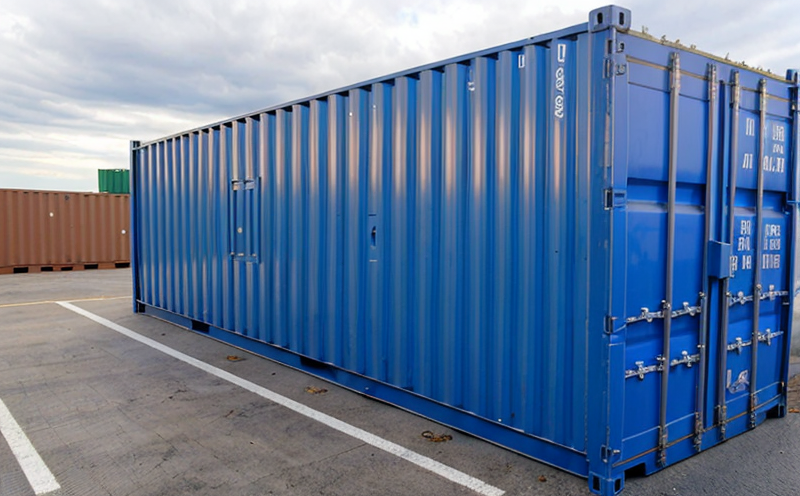DIN EN ISO 16495 Compatibility Testing of Plastic Storage Plastics
The DIN EN ISO 16495 standard specifies requirements and test methods to determine the compatibility of plastic containers used for storage. This is crucial in industries where the integrity of stored products must be maintained, such as food & beverage, pharmaceuticals, chemical manufacturing, and consumer goods.
Compatibility testing ensures that materials used do not interact with the contents they store, which could lead to contamination or degradation of product quality. The test evaluates potential adverse effects of both chemical and physical interactions between the plastic container and its stored substance over time. This is particularly important for long-term storage solutions where prolonged contact can significantly impact the integrity of the material.
The standard covers various types of containers, including bottles, jars, and tanks made from different polymer types such as polyethylene (PE), polypropylene (PP), polycarbonate (PC), and others. The goal is to ensure that these materials remain stable in contact with their contents without compromising safety or quality.
The testing procedure involves placing the container with its stored substance under specific conditions for a defined period, then assessing any changes in properties like color, weight, volume, or physical integrity of the container. Compliance officers and R&D engineers rely on accurate results from this test to ensure regulatory compliance and product safety.
A key aspect of this testing is understanding the molecular structure of plastics used in storage solutions. Different polymers have varying levels of resistance to chemical interactions. For instance, polyethylene has excellent barrier properties but may not be suitable for acidic environments due to its lower chemical stability. Similarly, polypropylene offers good strength and durability but might not withstand high temperatures effectively.
Testing laboratories equipped with advanced analytical instruments like gas chromatography-mass spectrometry (GC-MS), Fourier-transform infrared spectroscopy (FTIR), and differential scanning calorimetry (DSC) play a crucial role in ensuring accurate results. These tools help identify trace amounts of leachable compounds that could pose risks if they migrate into the stored product.
The importance of this testing cannot be overstated, especially given increasing consumer awareness about health and safety issues related to packaging materials. Regulatory bodies worldwide recognize standards like DIN EN ISO 16495 as best practices for ensuring product integrity and compliance with international regulations.
By adhering strictly to these standards, manufacturers can protect their brand reputation while also contributing positively towards environmental sustainability goals by minimizing waste and promoting recyclability of materials used in packaging.
Industry Applications
The DIN EN ISO 16495 standard finds extensive application across numerous industries where plastic storage containers are integral to product safety and quality. In the food & beverage sector, ensuring compatibility between container material and contents is paramount for preventing contamination and maintaining shelf life.
Pharmaceutical manufacturers must adhere strictly to stringent packaging requirements to protect active ingredients from degradation or cross-contamination during storage and distribution. Similarly, chemical companies need reliable tests to guarantee that their containers do not interact unfavorably with hazardous substances they store.
The consumer goods industry also benefits significantly from this testing as it helps in developing durable yet safe packaging solutions for everyday products ranging from household cleaners to personal care items.
By incorporating DIN EN ISO 16495 into their quality control processes, these industries demonstrate a commitment to producing safe and reliable products that meet stringent regulatory standards worldwide.
International Acceptance and Recognition
DIN EN ISO 16495 is widely recognized and accepted across Europe and beyond due to its comprehensive approach towards ensuring compatibility in plastic storage containers. Many countries have adopted this standard as part of their national regulations, reflecting growing global consensus on the importance of material compatibility testing.
The European Committee for Standardization (CEN) has contributed significantly to developing this international standard, which aligns closely with other globally accepted standards such as ASTM D1979 and ISO 8062. This alignment ensures consistent methods worldwide, facilitating trade between countries that have adopted these standards.
Adherence to DIN EN ISO 16495 not only enhances a company's reputation but also opens doors for international business opportunities by demonstrating compliance with widely recognized quality assurance practices.
Environmental and Sustainability Contributions
Incorporating DIN EN ISO 16495 into your testing protocols can contribute positively towards environmental sustainability goals. By ensuring that plastic storage containers do not interact chemically or physically with their contents, you help reduce the risk of waste generation due to compromised material integrity.
Moreover, by choosing compatible materials based on rigorous tests like those outlined in DIN EN ISO 16495, manufacturers can enhance recyclability rates. This is particularly beneficial for polymers that are designed specifically for recycling processes without compromising performance or safety.
The standard also promotes the use of sustainable practices throughout the product lifecycle by encouraging the selection of eco-friendly materials and manufacturing methods. As a result, companies adopting DIN EN ISO 16495 contribute to reducing overall environmental impact associated with packaging waste.
Through continuous improvement initiatives based on these testing standards, businesses can foster a culture of innovation focused on sustainable development principles while maintaining high levels of product safety and quality.





